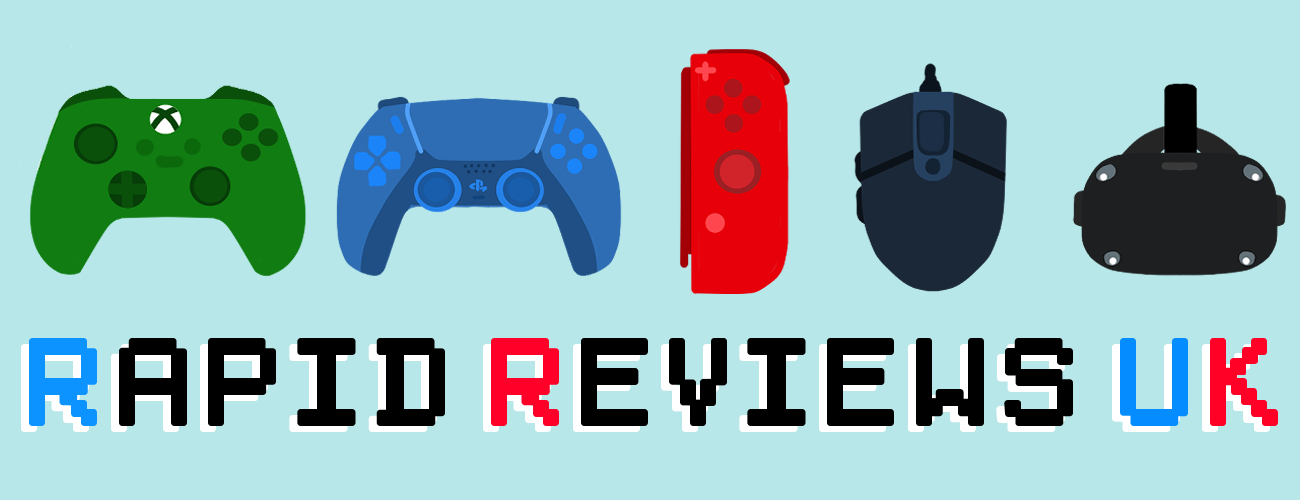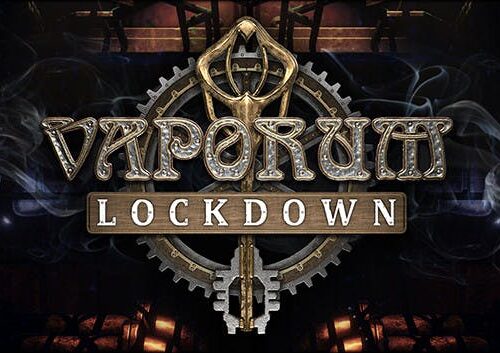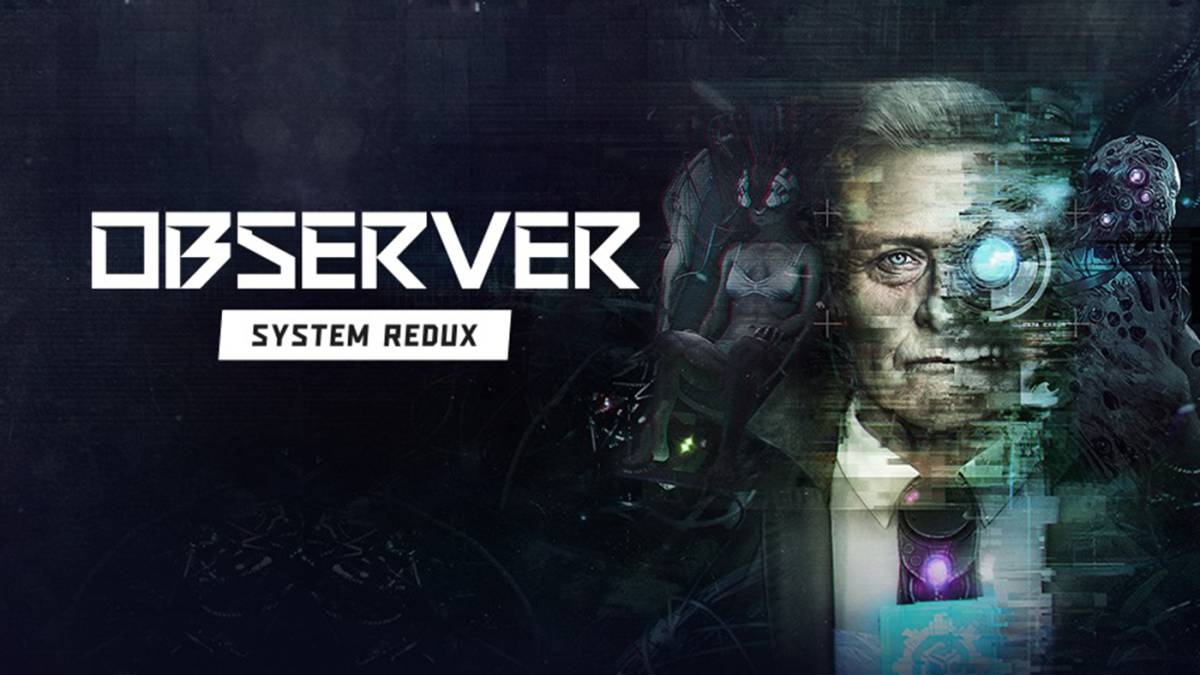Call of Cthulhu Review
Fast Facts
Title: Call of Cthulhu
Developer: Cyanide Studio
Publisher: Focus Home Interactive
Website: http://www.cyanide-studio.com/home
Genre: Horror, Adventure, RPG, Investigation
Platform: Nintendo Switch
Age Rating: PEGI 18
Release Date: 08/10/19
Price: £35.99 – Rapid Reviews UK were very kindly provided with a review code for this title.
All Hail Cthulhu
H’ ph’nglui fhtagnor fhtagn, fhtagn, mgng ng cthulhu mgepahe Nintendo’s uln.
When Lovecraft first felt inspired to create his mythos and unleash the great Old Ones on the world, I doubt even he could have anticipated the impact Cthulhu would have. The hold that this great deity has on us is at times unfathomable. Yet, here we are in 2019 and Cthulhu is still the go-to guy, arguably greater and older than ever.
Over the years many people have tried to call Cthulhu; today is Nintendo’s turn. A big release on the other home consoles earlier in the year, bringing the game to the Switch was another exercise in showcasing the machine’s ability to handle big games.
How did it do? Did Cthulhu answer the call or was it just a wrong number? Keep reading this rapid review to find out.
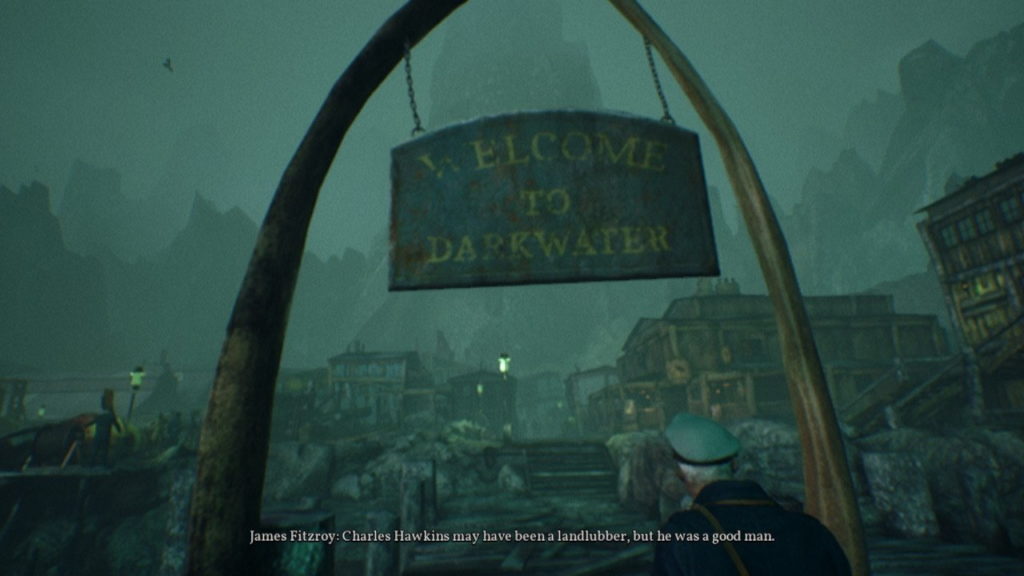
The Look of the Great Old Ones
Despite being interested in this game from before its initial launch I was never in the position to play it on any other platform. Not only did this mean I leapt at the chance of taking it out for a spin on the Nintendo Switch, but it also meant that I was reviewing it solely as a Switch game. My viewpoint is not shrouded over by earlier impressions of how it played on bigger, more powerful systems. That’s a good thing for me as a reviewer, and it’s a good thing for you as a reader interested in the Nintendo Switch version of the game.
Overall, I was impressed with how the game looked. It wasn’t perfect, there were some texture issues and certain things didn’t necessarily look as crisp or realistic as I think they maybe should have done. A simple point of reference is the shark head at the very start of the game.
The different areas of the game were detailed and varied, from the docks to the bar, the Hawkins mansion, and the asylum. Each setting brought something new and while several places were revisited because of the game’s plot, it never felt that you were needlessly wandering the same area.
The issues I had with the look of the game were more niggles than anything else. Small things that just caught your eye enough to be noticeable, and therefore annoying. Three things, in particular, all focused around the NPCs.
Their movements were not always as fluid as I would have expected, with their jerky movements often making them look more like tweaked out figures going through the throes of withdrawal than they did a mutual participant in a friendly conversation.
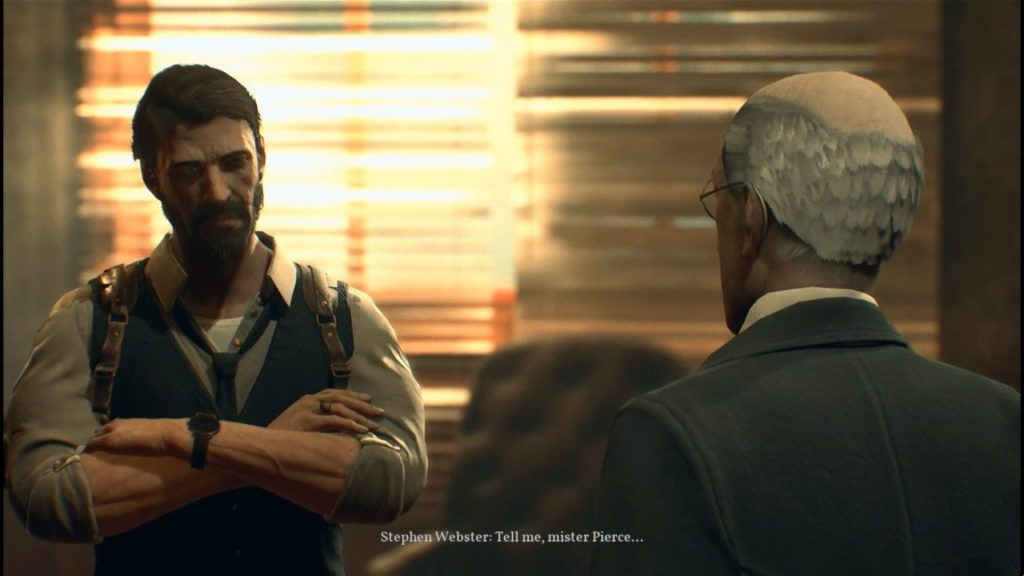
Likewise, the mouth movements did not make sense. They were neither out of sync nor really representative of speech in any form. It was a more robotic animation that left something to be desired.
The scale of certain aspects of the characters just didn’t always make sense. This was especially around the wrist and hand graphics. Without spoiling too much of the plot, around the mid-point you need to talk to a character whose husband has just died. During the entire series of interactions with her, all I could see was the size of her wrist, which did not fit the proportions of the character at all. It was a trend I then noticed in a few others as the game went on.
These were, however, only minor irritations that some may not even notice. They didn’t ruin the game, far from it; but they were noticeable enough to me to keep the game from really being a fully immersive experience.
On a different note, I did enjoy the voice work and sound effects in the game. The characters were, for the most part, all different from one another. The core NPCs at least. The background characters who would be either milling around or used in a small interaction did merge into one another, and I think the same model was reused several times for different people, especially in the asylum chapters, but that is forgivable as their role in the story was largely inconsequential.
The general sound effects were impressive and the different view that was entered for specific investigation scenes was nice. The visual aid of ghostly spectres replaying pivotal moments, helping you piece together the truth was an effective way of both enhancing the story and creating a mysterious atmosphere.
We will touch more on the skill tree and how these investigations were impacted later on. But it was another nice touch that positively impacts the way you play the game.

Entering the Darkness
Call of Cthulhu is an interesting game, the scope of which only truly becomes apparent as you play. The initial narrative seems incredibly linear, and over the course of the game, this remains largely so. However, while each section of the game involves getting from point A to point B, depending on how you play the game there are multiple ways of getting there.
There are several ways that your character can grow and how your actions can influence the direction your story goes. Now, I only played through the game once, but it was clear that there were different endings. The path I chose boiled down to a difficult, or not so in my case, yes/no decision to end that game. In total there are 4 different endings you can achieve.
The game kicks off with a decision and it is only after making the decision that you learn certain choices will impact your destiny. Your character, a somewhat cliched private investigator with a drinking problem wakes up in his office. Your choice is to take a drink or not. I took one, because, why not.
Following that you move straight into the story. A man’s daughter has died in a fire. He believes there is more to it and hires you to travel to the mysterious Darkwater Island and investigate what really happened.
That is where your adventure starts, and while you remain following this single investigation the entire way through, the way it unravels is a highly engrossing narrative that sucked me in more than I thought it would. Several times I genuinely found myself torn by the decisions I had to make, certainly when it came to deciding the fate of a certain character I had grown quite fond of. Ultimately, I couldn’t do it, a decision that still bothers me now.
The core gameplay mechanic was exploration and NPC interactions. I’ll admit the first part of the game dragged a little for me as a result. It felt like I wasn’t playing the game, or rather wasn’t invested in the game.
That did change.
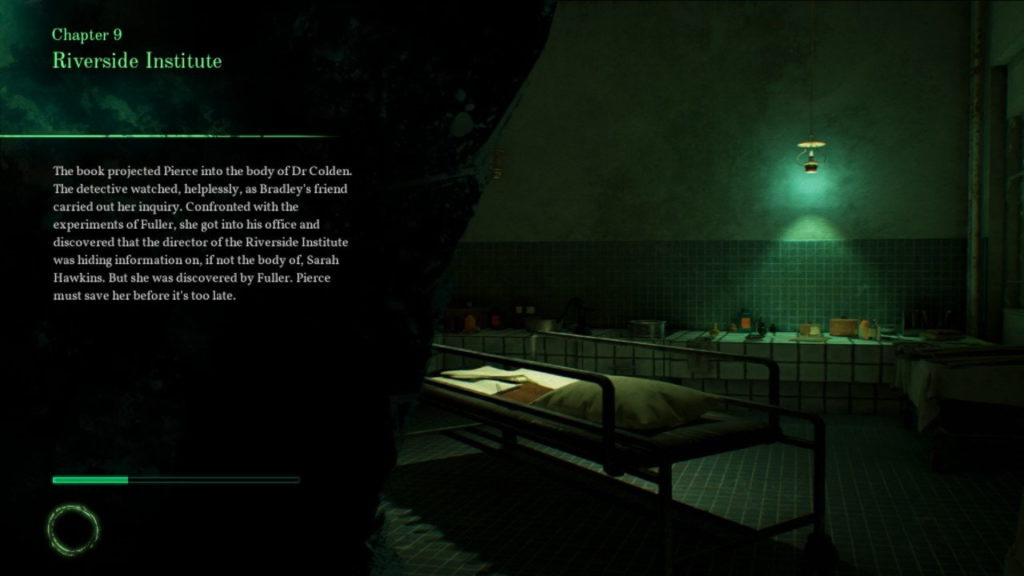
The deeper I got the more I learned to understand the way the skill tree impacted the game.
There are several elements to the tree.
- Eloquence
- Spot Hidden
- Strength
- Investigation
- Psychology
Increasing the above stats impact different areas of the game, from finding hidden items that help you progress via more direct means, like finding keys to a door instead of having to find a way to sneak inside. To expanding your conversation options and better understanding the meaning behind the answers you get. It was a clever series of skills and interactions that I can see delivering a different experience for each user.
You then have two more that only increase based on what you do and discover in the game. A reward for investigating and exploring beyond the linear narrative.
- Occultism
- Medicine
I focused on Eloquence, Investigation, and Psychology, spending the skill points I gained on these first. There was no real combat in the game, except for a sequence where you had to fire a gun that auto aimed and delivered 1 shot kills, so the strength skill seemed redundant to me.
The investigation skill was nice as it gave me more things to find during the investigation scenes, and this definitely helped pull me deeper into the story. Learning the smaller, subtler things that happened in a scene gave the story more depth and power.
Exploration was another key area of the game, and while I can’t recall any of the ‘puzzles’ or require items being too far off the pre-defined track. There were some nice story building elements to be found as a reward for those that went looking for them.
The controls were, for the most part smooth, and while I will admit I probably played the most in docked mode, I found no degradation of quality when playing in handheld mode. It was just how my playtime panned out for that week. I did experience the odd moment where the framerate dropped, but it was never to the extent that it ruined my experience with the game, or pulled me out of the story in any way.

Returning to the Depths
Given the branching story paths, there is a degree of replayability in this game. The multiple endings also lend themselves to repeated playthroughs, however, I was happy with the way my game went. I don’t have any hesitations about my decisions or the growth of my character (other than the aforementioned fate of my NPC best friend).
I don’t see myself replaying the game; certainly not any time soon.
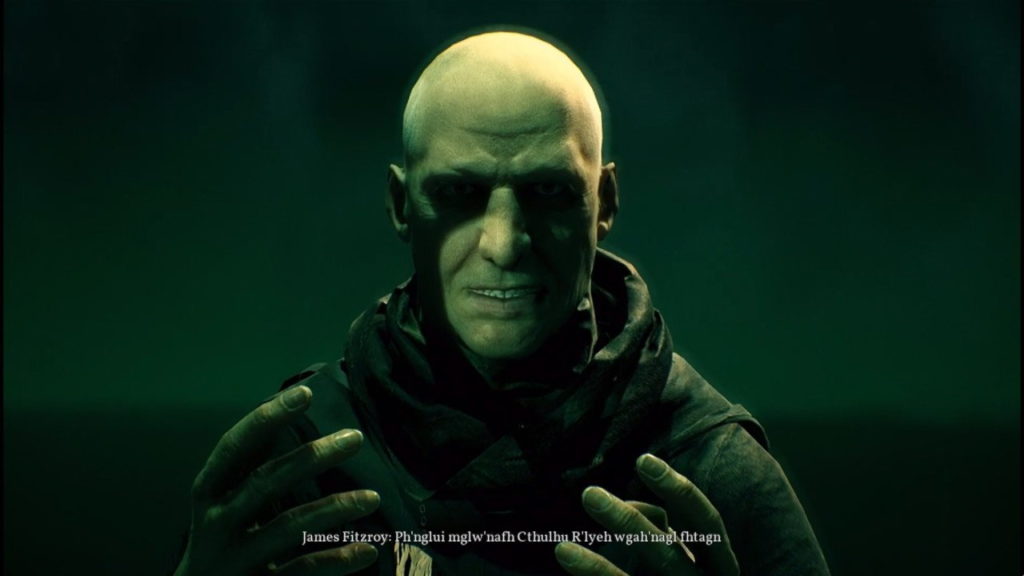
Answering the Call
Would I recommend playing Call of Cthulhu? Yes.
Would I recommend getting the physical? Yes, it’s a worthy addition to any collection.
Would I recommend buying it if you have already played it somewhere else? No, probably not.
Call of Cthulhu delivered everything I expected in the game but didn’t surprise me with anything that was enough of a standout for me to keep it installed or hold it close to my heart as a game.
It was fun, I enjoyed my time playing it but now it’s time to move on.
I found the start of the game a little too slow and rigid, and the understanding of the impact of your decisions only came after the first few rounds of discussions. Not that I think it had much impact, but you can’t help but wonder.
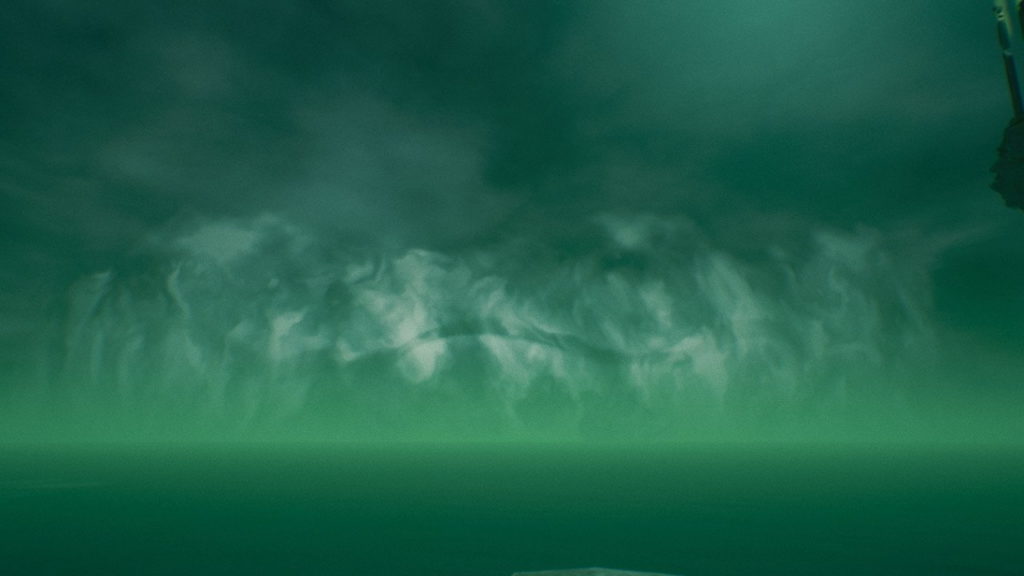
The middle section was fun, and while some of the ‘fetch quests’ were a little unclear, you could stumble onto the right path without too much trouble.
I thought the ending dragged. I could have lived without the shooting scene. It should have either been turned into a stealth mission in line with the rest of the game or used the strength mechanic and actually made it a challenge that went beyond merely pulling a trigger. The climb up the steps from the caves before you were faced with the final decision was also, in my eyes, unnecessarily long and repetitive.
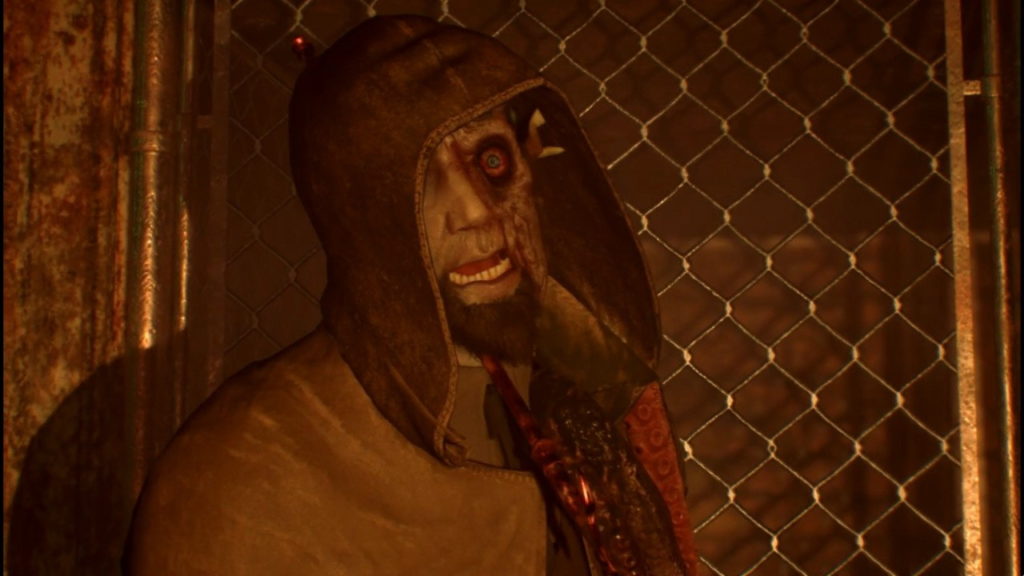
Rapid Reviews Rating

You can purchase Call of Cthulhu from the Nintendo eShop using the following link: https://www.nintendo.co.uk/Games/Nintendo-Switch/Call-of-Cthulhu-1637467.html
